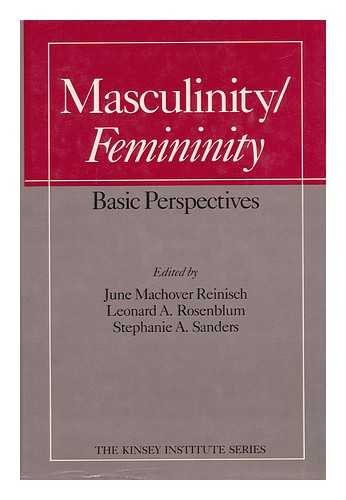Inhaltsangabe:
Throughout history, the dichotomy embodied in the terms 'masculine' and 'feminine' has been an entrenched, emotion-laden, and staunchly defended categorization of humankind. The discoveries of modern science, however, indicate that the characteristics of each gender are determined by a much more intricate interaction between biology and the environment than is commonly accepted. This book, the first in the Kinsey Institute Series on issues related to sex, gender and reproduction, presents an authoritative work on the subject of sexual differentiation. It affords a remarkably broad and integrative view of contemporary concepts and investigations of sex differences in both humans and animals, and in children and adults. The contributors explore the concepts of masculinity and femininity from seven distinct but interrelated perspectives: psychobiologic, neuroscientific, evolutionary, behavioural genetics, developmental, psychosocial, and cultural. Specific topics range from sex role behaviour in children, to the psychological constructions of masculinity and femininity. The resulting work demonstrates the efficacy of an interdisciplinary approach to this complex topic, and provides fresh insight into the problems of sexual differentiation. Readership: Psychologists; neuroscientists; physiologists; social scientists; psychiatrists.
Reseña del editor:
Throughout history, the dichotomy embodied in the terms 'masculine' and 'feminine' has been an entrenched, emotion-laden, and staunchly defended categorization of humankind. The discoveries of modern science, however, indicate that the characteristics of each gender are determined by a much more intricate interaction between biology and the environment than is commonly accepted. This book, the first in the Kinsey Institute Series on issues related to sex, gender and reproduction, presents an authoritative work on the subject of sexual differentiation. It affords a remarkably broad and integrative view of contemporary concepts and investigations of sex differences in both humans and animals, and in children and adults. The contributors explore the concepts of masculinity and femininity from seven distinct but interrelated perspectives: psychobiologic, neuroscientific, evolutionary, behavioural genetics, developmental, psychosocial, and cultural. Specific topics range from sex role behaviour in children, to the psychological constructions of masculinity and femininity. The resulting work demonstrates the efficacy of an interdisciplinary approach to this complex topic, and provides fresh insight into the problems of sexual differentiation. Readership: Psychologists; neuroscientists; physiologists; social scientists; psychiatrists.
„Über diesen Titel“ kann sich auf eine andere Ausgabe dieses Titels beziehen.
![]()
